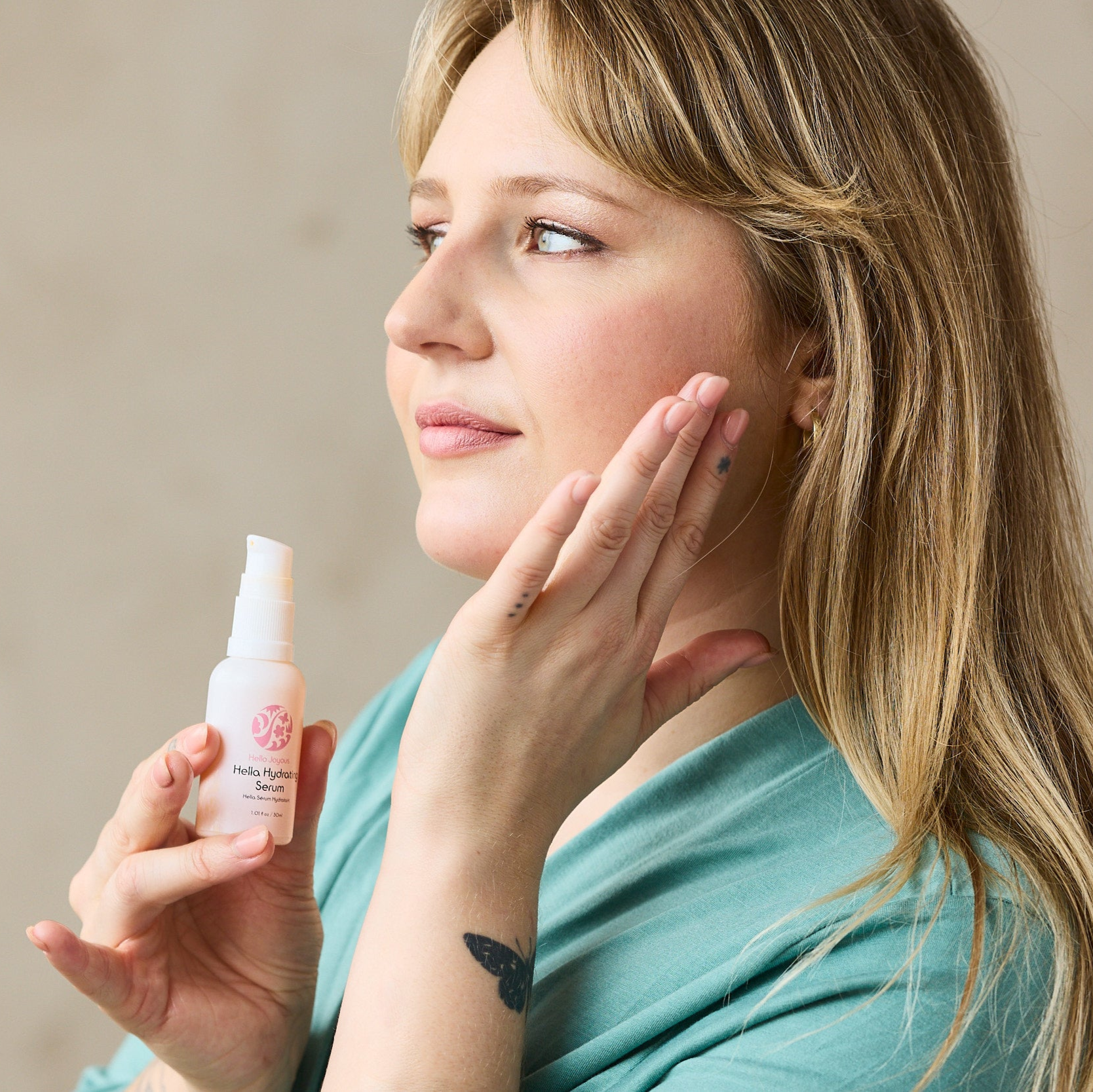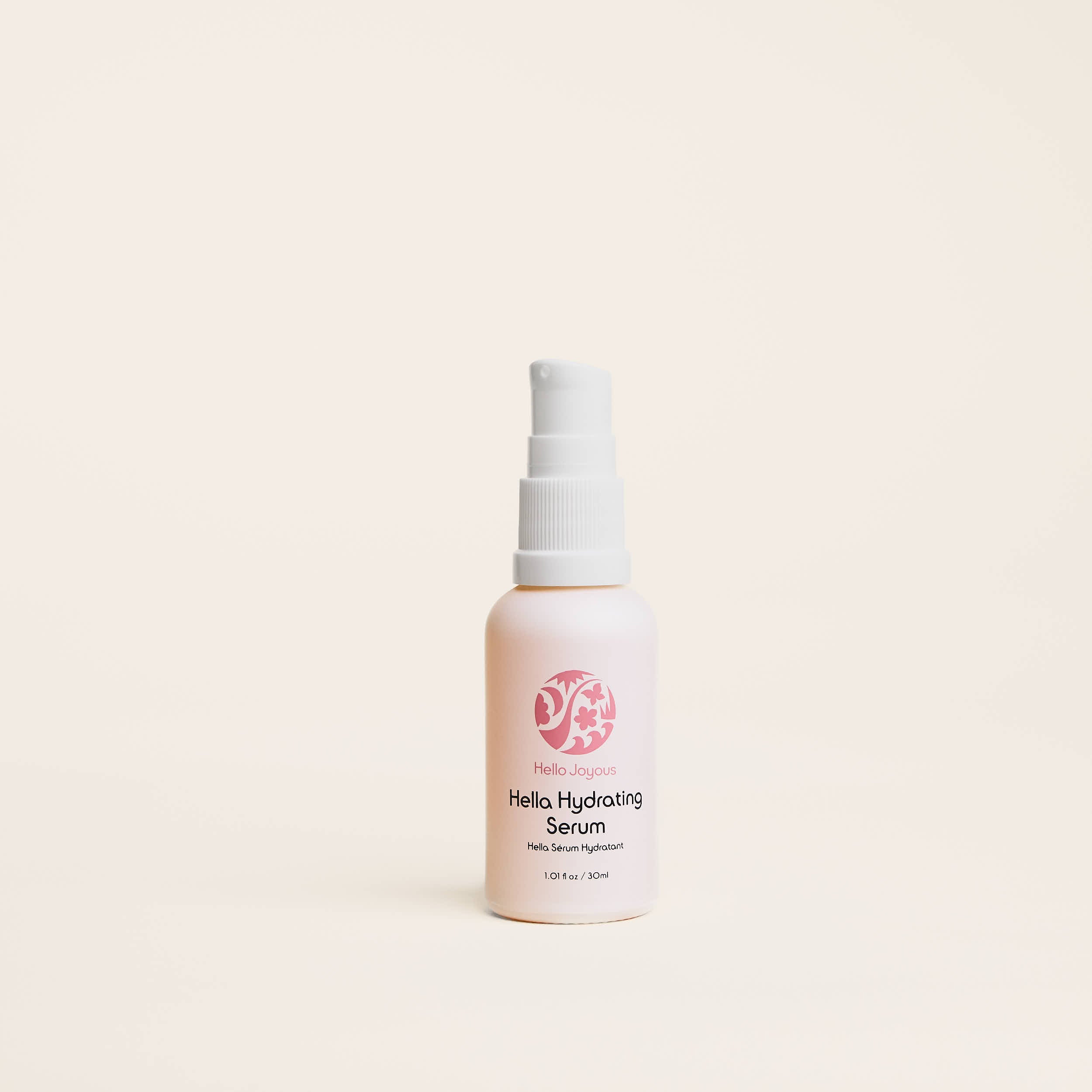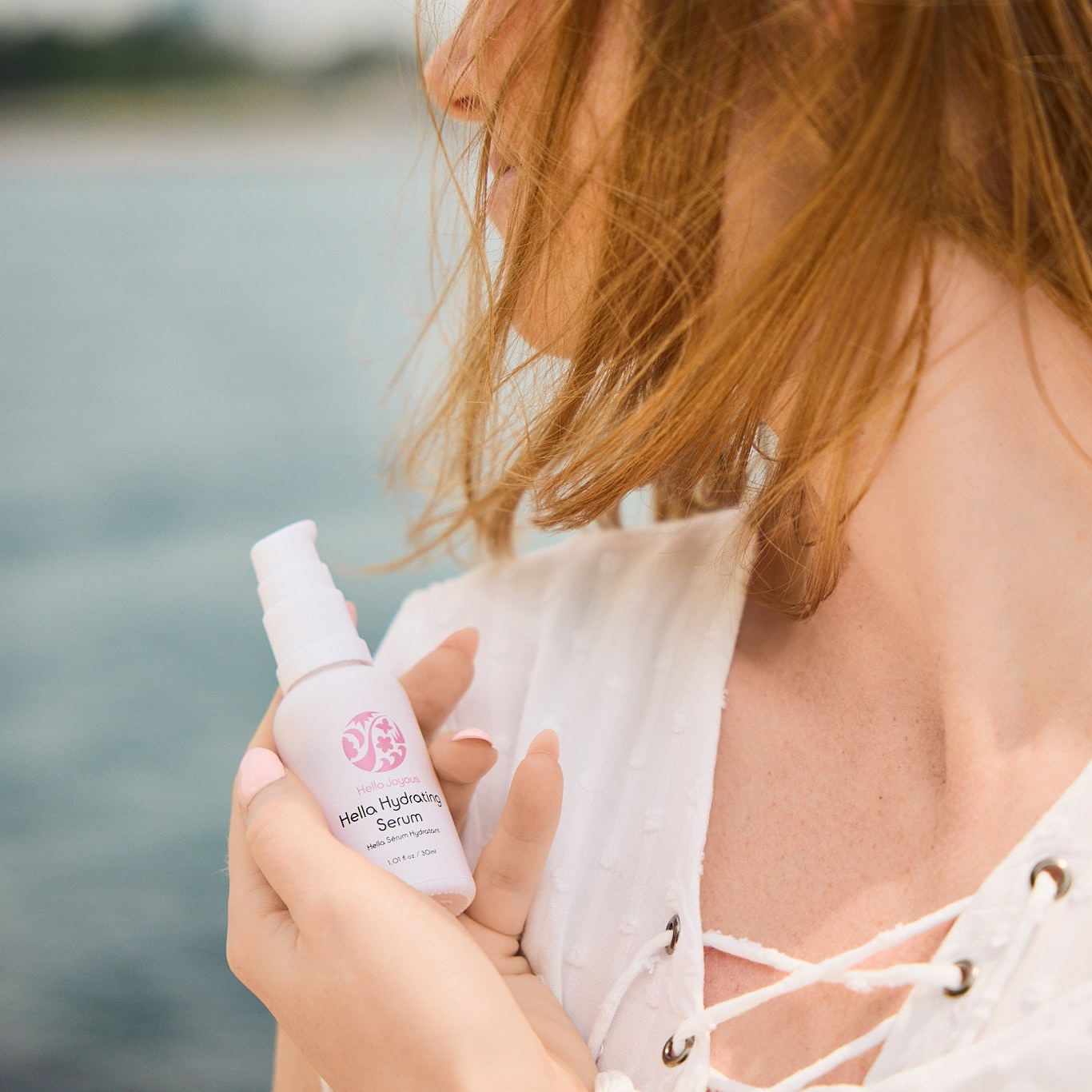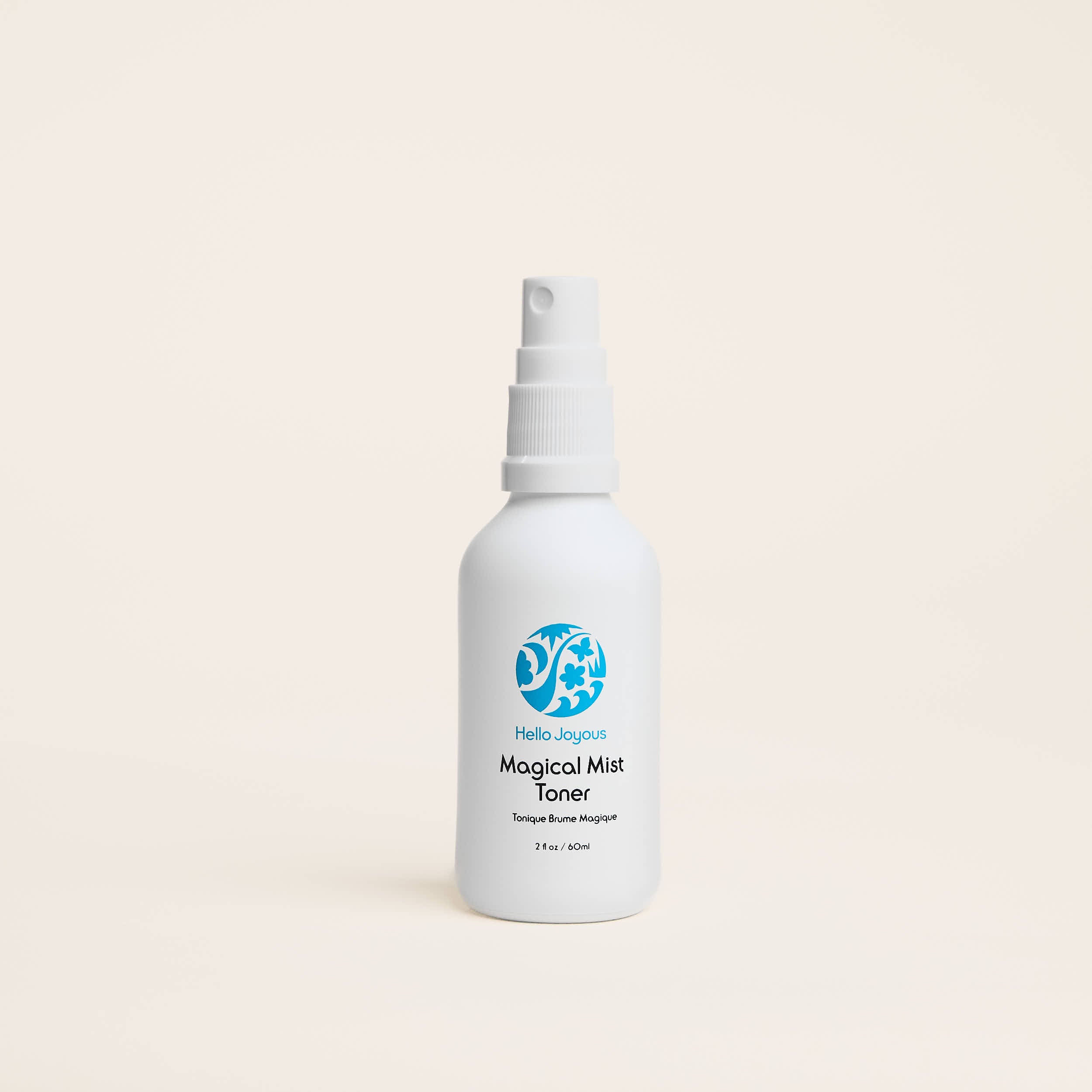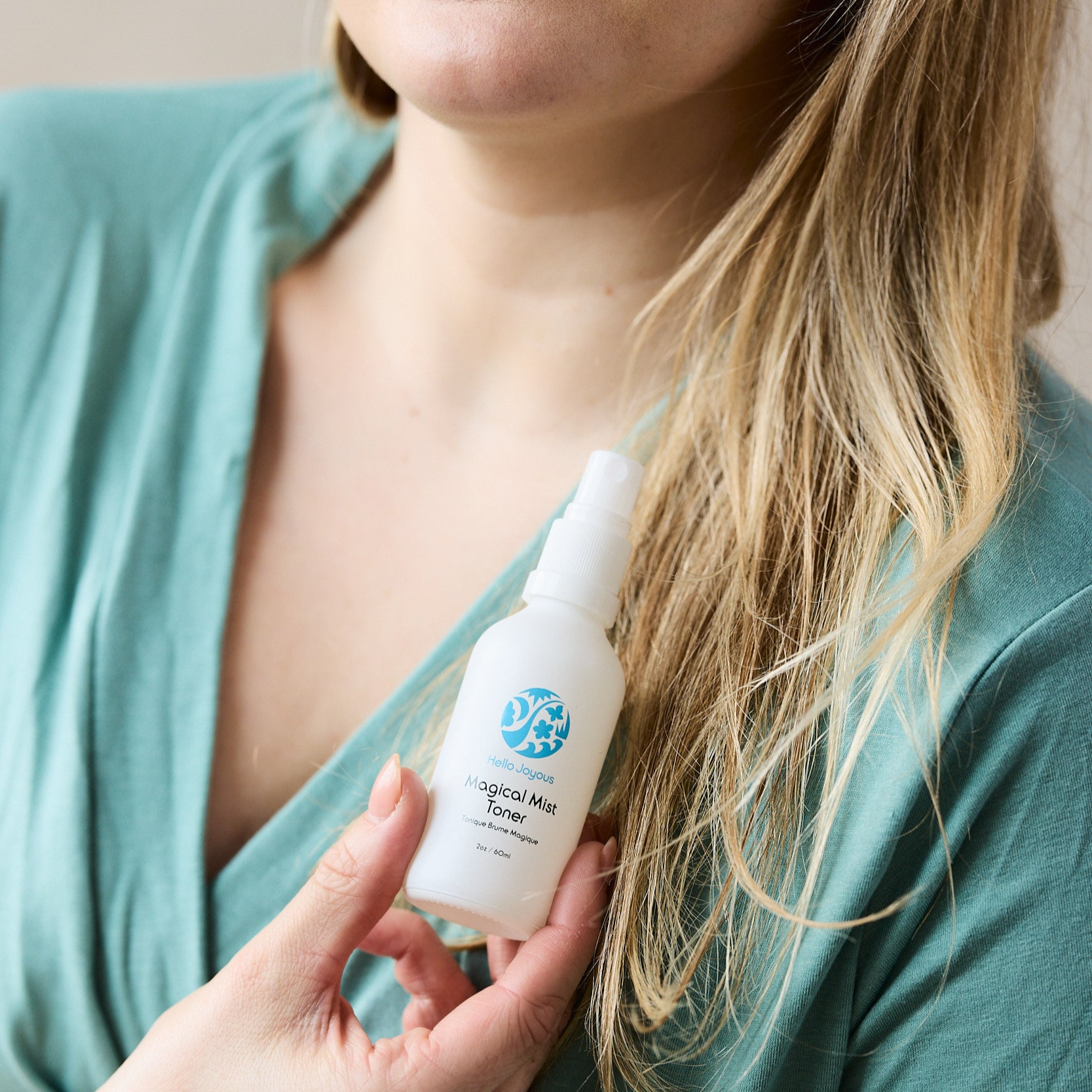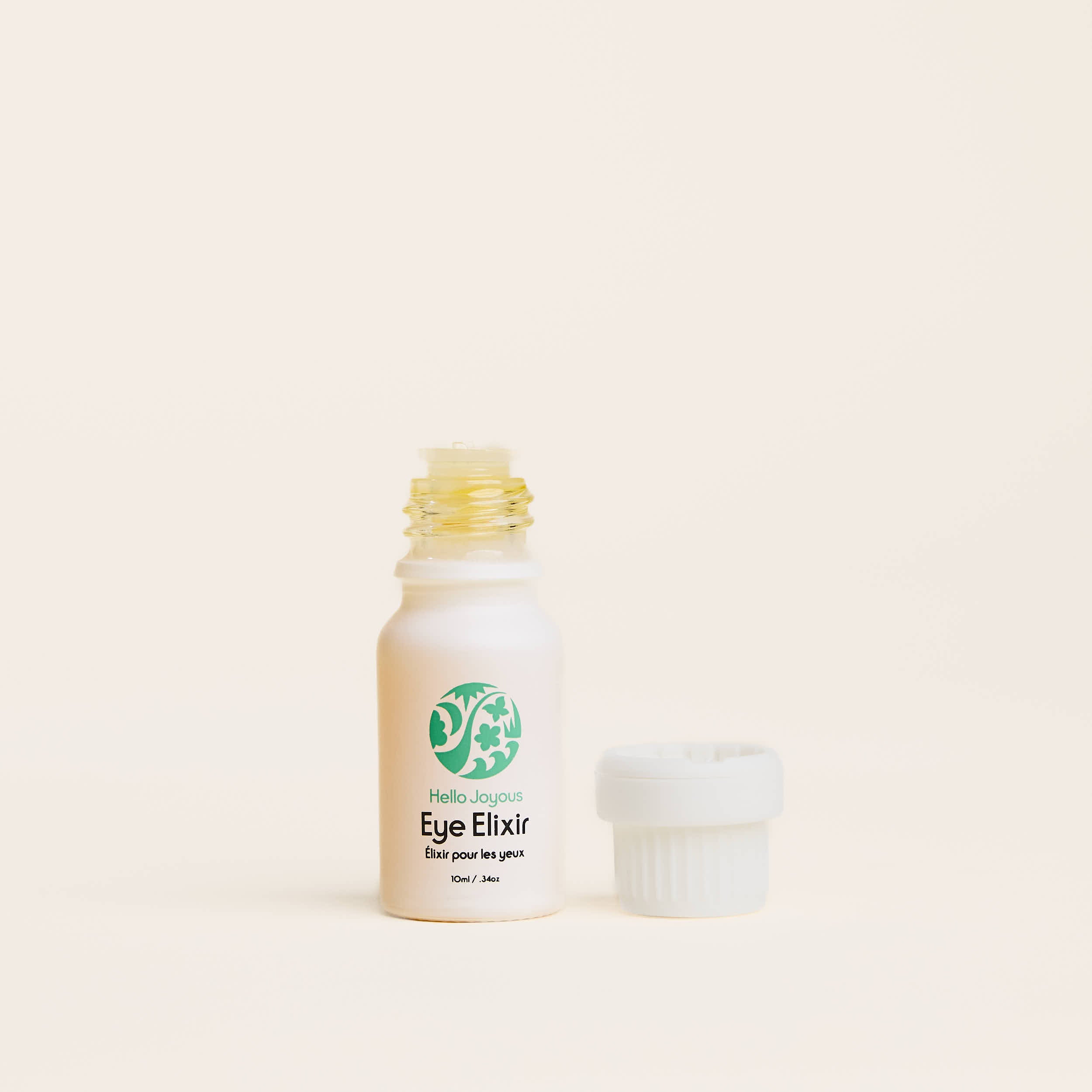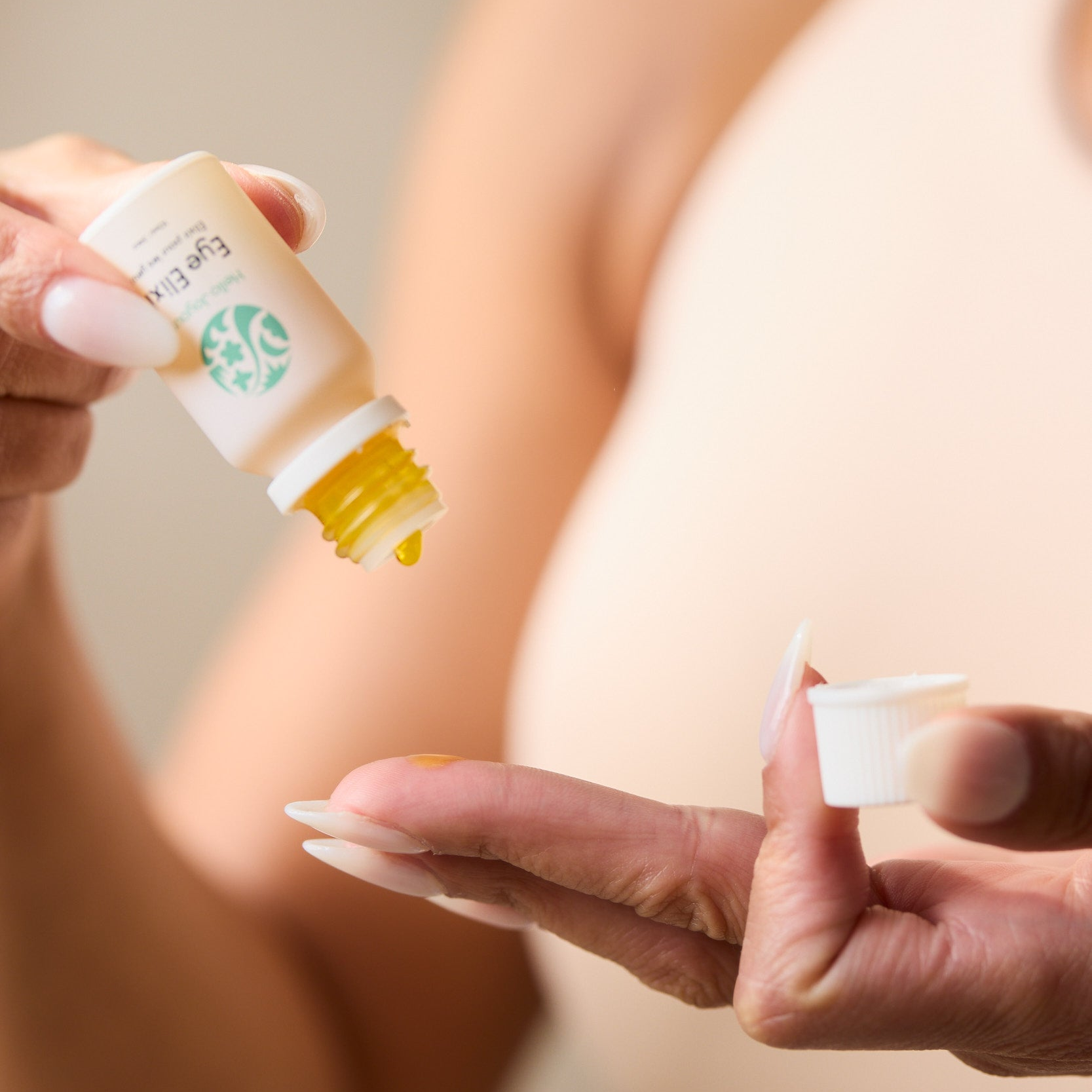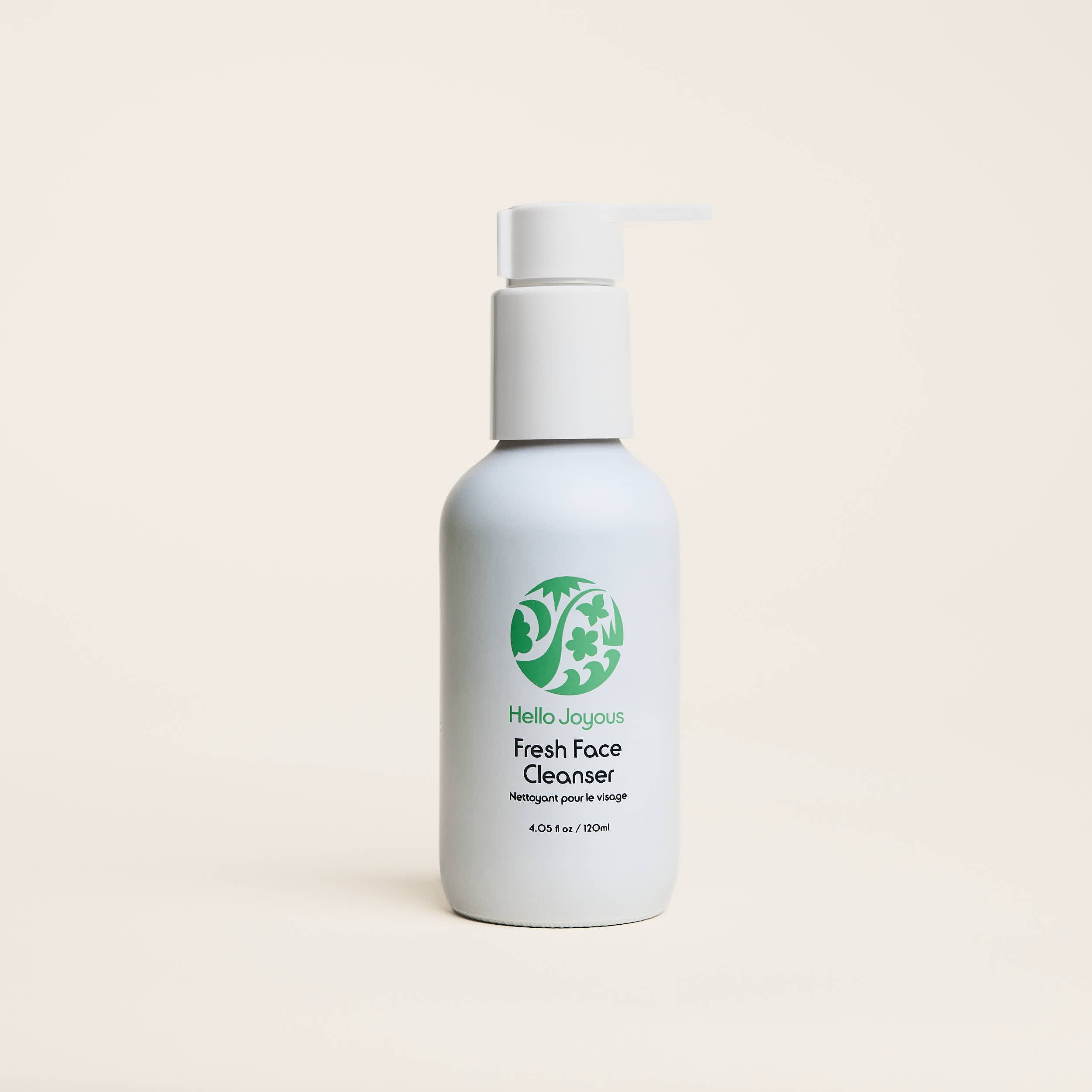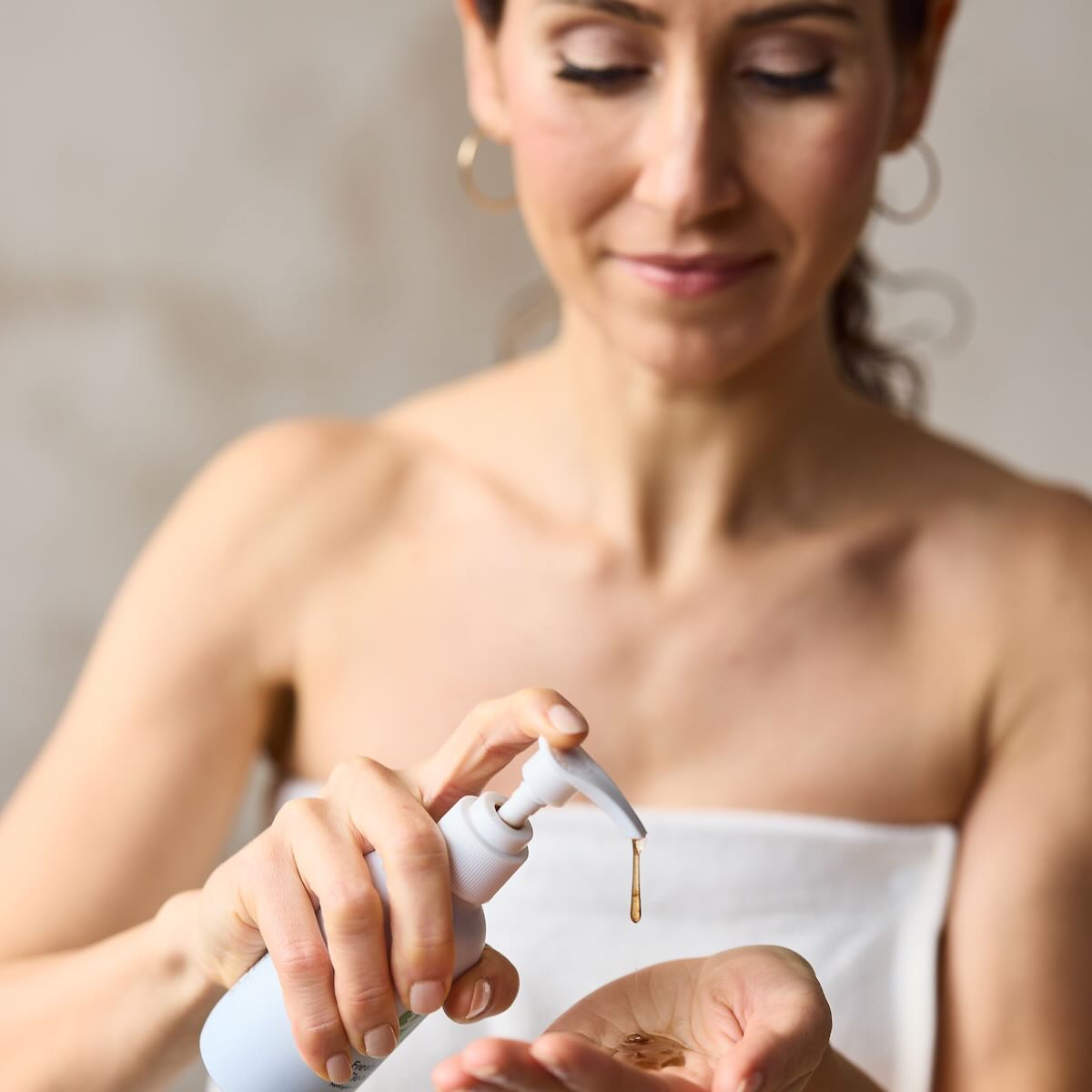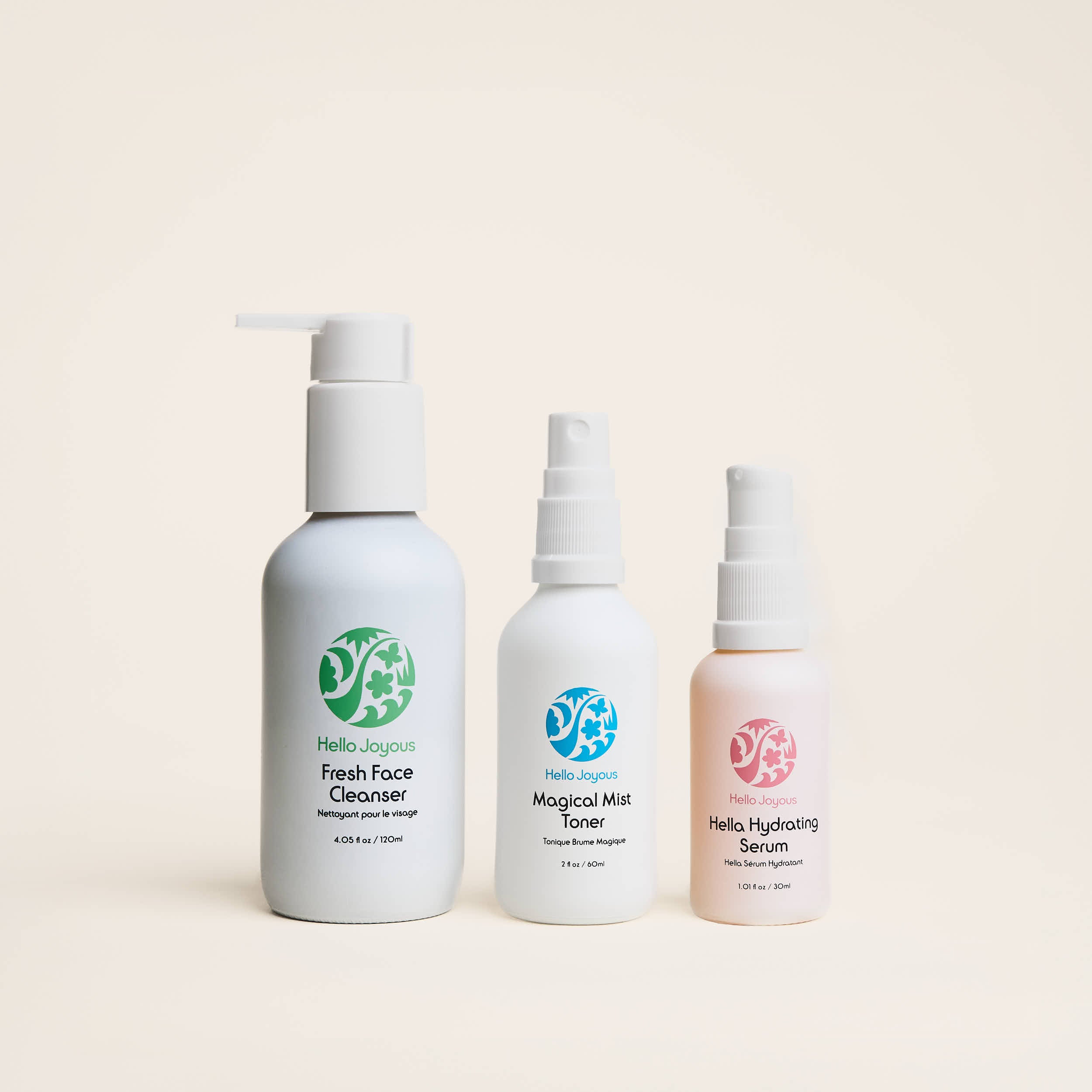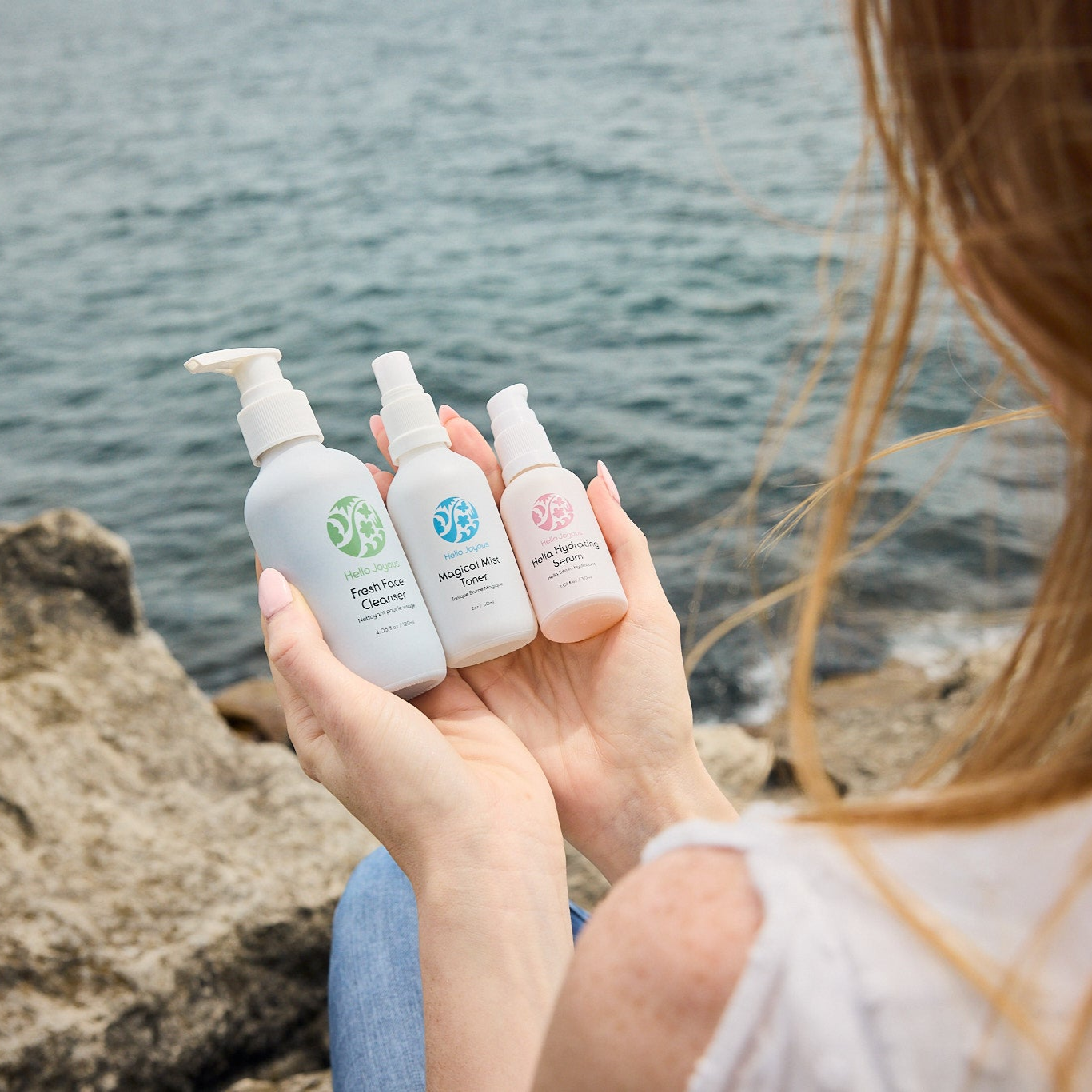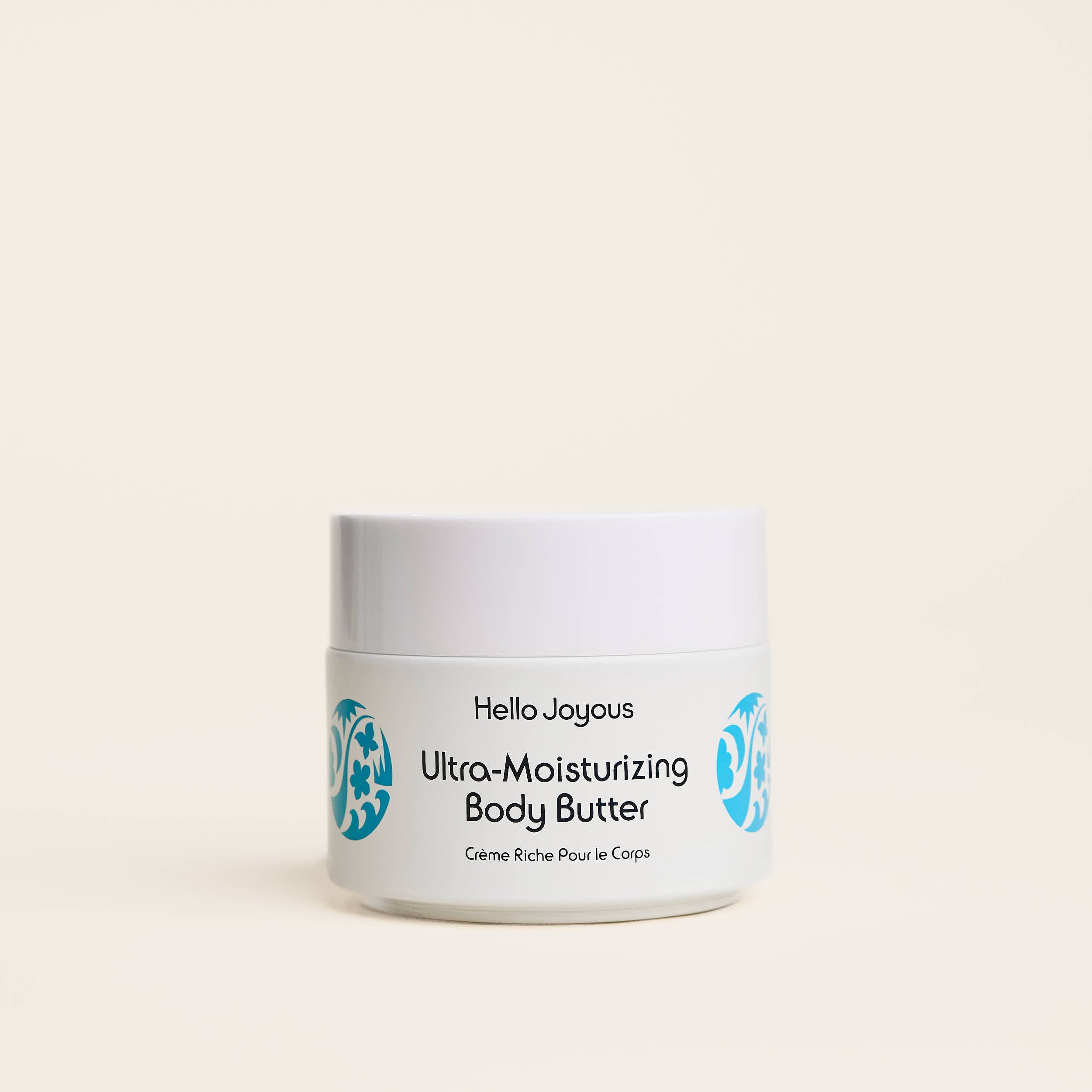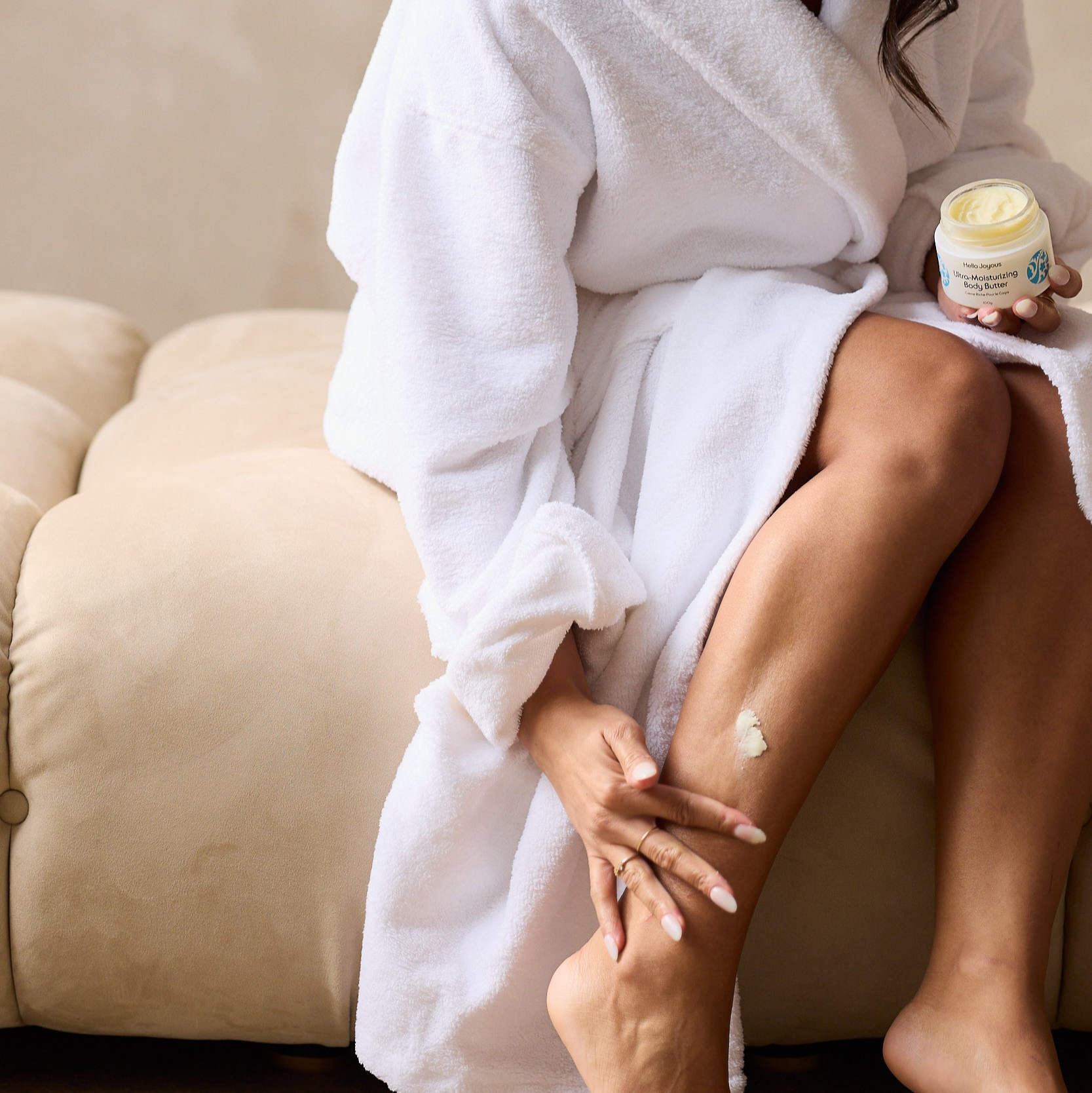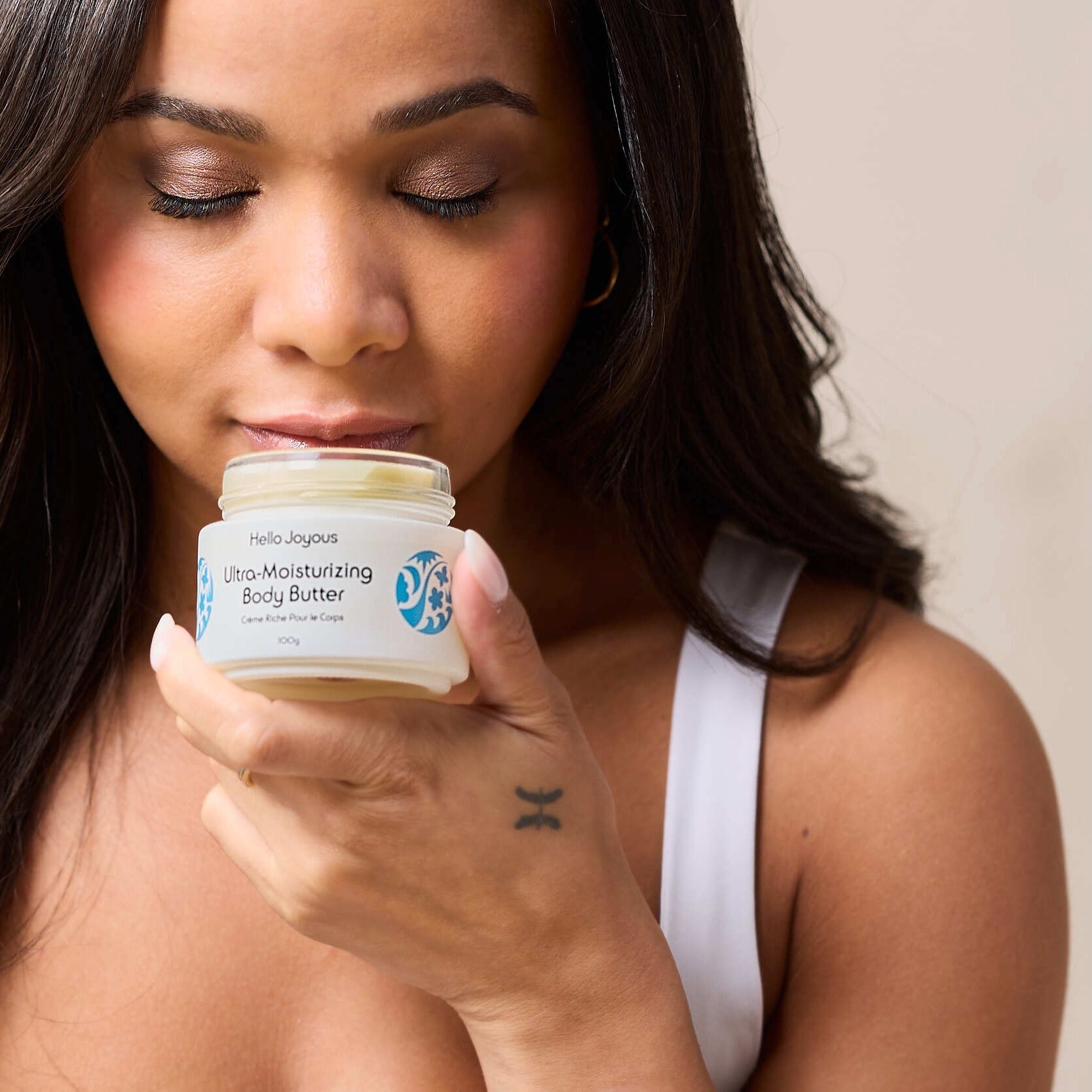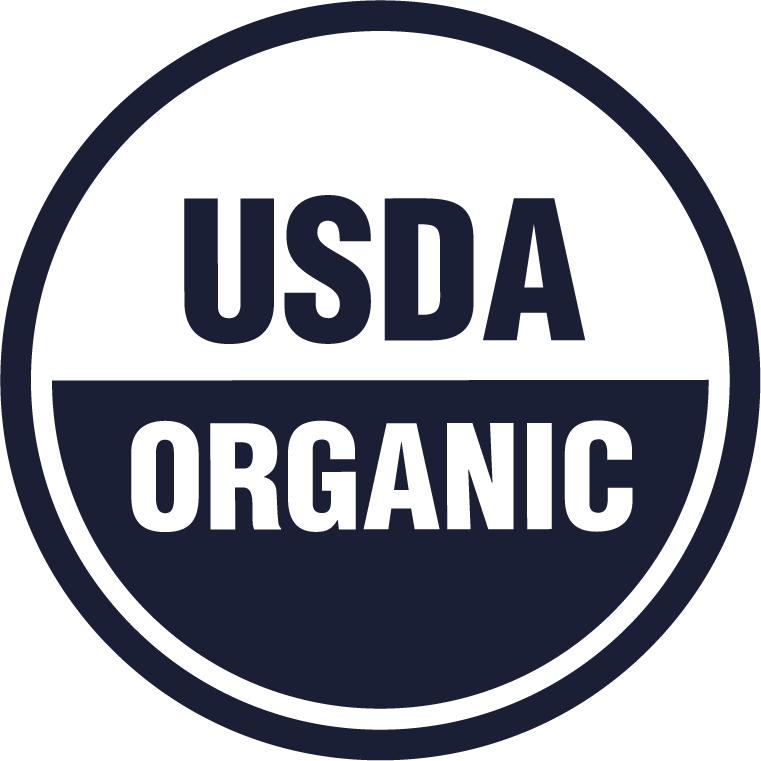At Hello Joyous, we pride ourselves on creating clean, effective beauty products sourced from organic plants that are free from hormone-disrupting chemicals like phthalates, irritating preservatives, and other ingredients you don’t want on your body. However, what you might not realize is that even a lot of so-called clean beauty brands are still loading their products with synthetic fragrances. In fact, up to 95% of natural beauty products contain synthetic fragrances to either add a pleasant scent or mask a bad smell.
One of the promises we make is that you will never find a synthetic fragrance in any of our products. They smell like the plants and essential oils that we use in our formulas, keeping things light and fresh so you can smell the flowers, and not the fragrance!
Below, we’ll outline everything you need to know about synthetic fragrances, including what they are, how to find them on labels, possible negative health impacts, and the simple swaps you can make to clean your beauty routine!
Why you want to ditch the fragrance
While synthetic fragrances or parfums are used in most beauty products, their ubiquitous nature doesn’t indicate safety. One reason we are so focused on keeping our products as clean and natural as possible is because our skin is our largest organ and we can absorb many of these chemicals directly through the skin cells or through hair follicles and sweat ducts. Once these chemicals pass through our skin, it has the opportunity to get into your bloodstream and circulate around your body.
In fact, research published by the American Journal of Public Health found that the skin can absorb between 64% and 100% of the chemicals in your skincare product. How does this happen? There are a few factors at play here including the size of the molecule, a compromised skin barrier or an imbalance to your skin microbiome or your skin pH.
Many of these chemicals may be fine when exposed to them infrequently in small amounts, but most women are using multiple products, with multiple chemicals once or more per day. All of that exposure can add up in the long term and lead to some not-so-joyous health effects.
Everything you need to know about synthetic fragrances
Something most people don’t know is that synthetic fragrances can contain more chemicals than a puff of cigarette smoke! One cigarette contains approximately 250 different chemicals, whereas a company’s signature scent can contain up to 3000 different chemical compounds. That’s because “synthetic fragrance” is actually an umbrella term for a mixture of up to 3,000 different ingredients. The main issue with synthetic fragrances is that many of these chemicals have not been tested for safety, especially not when combined, which is how they are most often used in real life.
The regulations that allow companies to list “fragrance” on product labels are in place to protect trade secrets and big corporations, not the consumer. These protections make it virtually impossible to uncover the specific chemicals that are used in any particular product or brand. These chemical combinations and their unknown health risks is one reason we consider fragrance and parfum to be the new second hand smoke!

It’s likely you know someone in your life who is sensitive to perfumes and fragrances. When formulating fragrances, not every chemical used is necessary for the actual scent. Some synthetic fragrances are made with chemicals called phthalates (read more about them here!) that help the scents stick to your clothes and linger in the air. Other petroleum-based chemicals often used fragrance formulas include: phenol, limonene, toluene, acetone, and benzyl acetate
A major issue with the fragrance industry is that it isn’t federally regulated, which means there are many fragrance ingredients that are exempt from labelling laws, but that doesn’t mean they’re exempt from health effects! In fact, this study found that there were hazardous chemicals in many common beauty and personal care products that are linked to everything from skin irritation and respiratory issues to neurotoxicity and breast cancer development.
Why companies use synthetic fragrances
While it may seem counterintuitive that a blend of up to 3000 chemicals is cheaper and easier to produce than an essential oil or extract, that is unfortunately the case. This affordability is the main reason that many companies use synthetic fragrances in their products instead of the real deal. These fragrances often contain fillers as well, which can stretch their use even further and lower the cost even more. Taken together, these savings make synthetic fragrances an attractive alternative to manufacturers who are looking to save some money, while still producing a product that consumers think smells good.
That’s why more than 95% of hair care products and most deodorants, moisturizers, body lotions, and of course perfumes and colognes make use of these chemicals. You might think that if you shop for unscented or hypoallergenic products that you don’t have to worry about synthetic fragrances, but that’s not the case. Some companies use chemical combinations to mask unpleasant smells in their products so that they can call their products unscented! Many of these fragrance chemicals contain phthalates and other ingredients. This sneaky trick is why it’s so important to be educated as consumers and to always read your labels.
Sadly, just because a company or product claims to be natural or clean, that doesn’t mean they aren’t still using synthetic fragrances. It’s not uncommon to find brands using them because they can be easier to work with and they are a lot cheaper. That’s one reason we pride ourselves on transparency in our labelling–what you see is what you get and you will NEVER find a product with synthetic fragrance.
What to watch for on labels
Learning how to read your labels when shopping for beauty products ensures you’re able to purchase products that are healthy for you and the planet. The most common names or ingredients to watch for include:
- Parfum
- Fragrance (artificial or natural)
- Cologne
- Perfume
- Limonene
- Linalool
By taking a few moments to check your labels you’ll be able to see whether your favourite beauty brands are clean and safe or contain potentially irritating fragrance ingredients. Luckily, as consumers become more savvy and more aware of the health effects of synthetic fragrances, companies are starting to create products that are pure, natural, and effective.

How can you limit your exposure to these fragrance chemicals?
- Avoid purchasing products that list fragrance or parfum as an ingredient, and not the actual fragrance ingredients, such as essential oils.
- Unscented products may contain a hidden fragrance formula. Always consult the label to ensure it discloses all ingredients. As mentioned above, many products will have chemicals to mask an unpleasant smell so they can call it “unscented”.
- Use only products with organic essential oils used for scent.
- Check out all our Hello Joyous products because we do not use any fragrance chemicals to keep you safe!
What are the health effects of synthetic fragrances?
One of the issues with tracking the health effects of synthetic fragrances is that they can be made of such a broad range of chemicals. That means there can also be a broad range of health effects. When it comes to scented beauty products the effects can be two-fold–ot only are we inhaling these synthetic scents, they are often also being applied to the skin or hair. Since our skin can absorb anywhere from 60 to 100% of what is applied to it, that can be quite an uptick in our daily toxic load, especially if we’re using multiple scented products daily.
Many of the health effects of synthetic fragrances can be linked to phthalates and other chemicals and include:
- Links to early puberty development in young girls
- Lowered sperm counts in men
- Hormone disruptions in men and women
- An association with obesity & insulin resistance in men
- Triggering allergies and/or migraine attacks
- Triggering asthma attacks in susceptible people–one survey found fragrances triggered an attack in 3 out of 4 asthma sufferers!
- An association with cancer development & neurotoxicity
- Bioaccumulation over time, leading to long term health issues
We don’t think there is any world in which smelling like tropical vanilla is worth the risk of these negative health effects. That’s why all of our Hello Joyous products smell like the essential oils or plant ingredients we use in our formulas. Not only do they tend to smell fresher and more natural, they often have extra skin and body-lovin’ benefits!

If you pick up a bottle of our Magical Mist Toner or Eye Elixir Serum, you’ll notice a subtle floral smell from the organic rose geranium. The rest of our organic skincare line smells fresh and earthy thanks to the plant botanicals and extracts we use–we think you’ll love the natural vibe of our Fresh Face Cleanser, Hella Hydrating Serum, and Super Natural Mask. Our best-selling Ultra-Moisturizing Body Butter smells softly like decadent chocolate thanks to the skin-nourishing cocoa butter.
Our customers love the light, fresh scent of our Dry Shampoo for Light or Dark hair. Each one is scented with organic essential oils like butter vanilla and citrus. Dry shampoos can be loaded with fragrances, butane, and other chemicals so subbing for our organic, naturally scented option can reduce your toxic load, while giving your hair a volumizing refresh.
Whatever your need, you can feel confident knowing that each Hello Joyous product was formulated with the health of you and the planet in mind out of the highest quality ingredients. Now that’s something to smile about!
Read more

At Hello Joyous clean beauty is more than just a passing trend or buzz word; it is the belief that guides everything from our product development to packaging. We love highlighting the benefits of ...
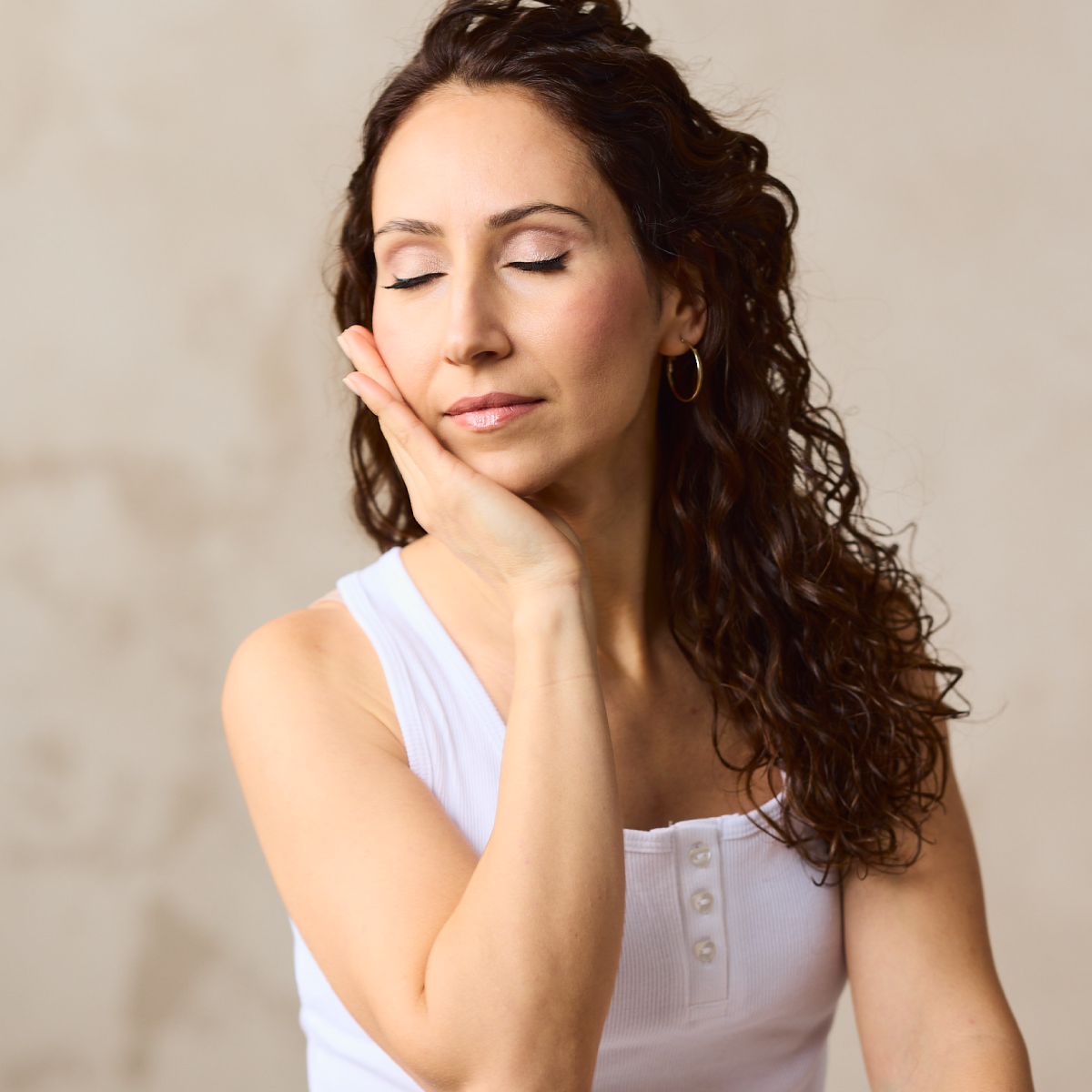
Have you noticed your skin is changing in your late 30's, 40s and 50s? You're not alone. Or perhaps you notice your skin changes throughout the month if you're menstruating when estrogen takes a bi...
